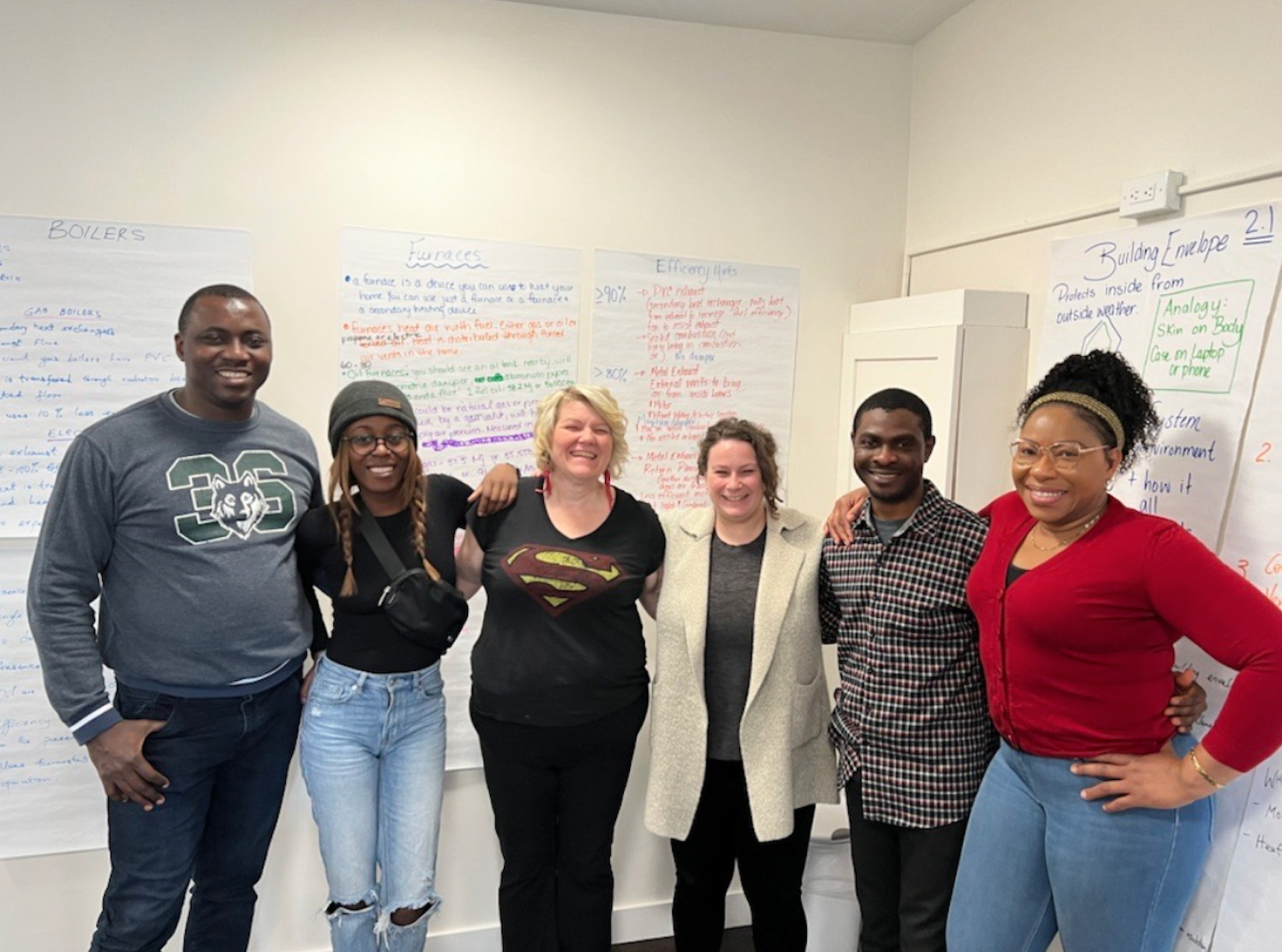A community network is helping African Nova Scotian, Black and Indigenous people train for jobs in the growing clean energy sector.
Rashelle Williams had studied travel and tourism and landed a good job with the Halifax Regional Municipality, but then the pandemic hit, and her entire department was laid off. She decided to reboot her career in a way that would benefit her and the environment.
“The energy sector is thriving. There’s going to be nothing but growth here, so why shouldn’t everybody have the same opportunity?” she says.
Williams retrained as a Natural Resources Canada-certified energy adviser (EA) through the Clean Energy and Equity Network (CEEN) and became the first African Nova Scotian woman to hold that credential. One of her classmates was Catherine Innes, who became the first Indigenous woman to hold the title.
Williams says the career change was daunting.
“When I started this program, I was a 32-year-old mother of two who had just found out one of her children had been diagnosed with a disability so, I had no reason to believe I could do any of this because of the amount of stress I was under,” she says.
Innes also lost her job to the pandemic.
“I came across the EA program and thought, this is my calling,” she says. “It feels very rewarding to be working in clean energy. Mi’kmaw people, we’re put on this Earth to look after our land. We all have to do our part.”
Both women say in light of the legacy of environmental racism in Nova Scotia, where past governments placed dumps and other hazardous services near many Black and Indigenous communities, they’re happy to be part of the effort to rectify that.
Williams and Innes graduated as EAs together but decided to work as community champions with CEEN. They give public talks across the province to educate people about the range of financial help from governments that can lower the cost of making green upgrades or of launching a new career.
“We want to let people know that there are ways to get educated and there are stable jobs in this industry that you can attain that don’t need years and years of university. A lot of people that are changing careers now are later in life,” Williams says. “We can help you find bursaries and scholarships if there’s something in the energy sector you’d like to do.”
Innes and Williams say they both found the EA program challenging and Williams failed in her first attempts at the NRCan exams. But she credits the friendly classroom environment, with students aged 18 to in their sixties, for helping them stick to it.
“It was such a welcoming and homey feeling being there with people you know actually care about helping you and getting you to the next level,” Williams says. “Going into a classroom and seeing no one that looks like you can be nerve-wracking. Walking into a classroom where everyone does is exciting.”
Innes says it’s worth the effort.
“To move on and find great jobs after doing this EA program, we are so happy to succeed in that area and to help other students become successful,” she says. “And a lot of the students are coming from First Nations communities and Black communities. And they’re succeeding.”
They call it a “boots on the ground social network.” CEEN’s founding partners are Clean Foundation, One North End, the Native Council of Nova Scotia, and the Confederacy of Mainland Mi'kmaq. They have received financial support from both the federal and provincial governments.
“There’s no age limit when it comes to learning about clean energy. All this is new to society. We need to reduce our carbon footprint. The only way to do it is to get everyone educated,” Innes says.
Anna Gorman is the engagement lead for the Clean Foundation, which helps operate CEEN. She says as Canada makes a generational shift to clean energy, they want to ensure African Nova Scotian, Black, and Indigenous people find work at the core of the new industry.
“Lots of the jobs we’re looking at helping people move into in the energy sector are trades positions,” she says. “Solar installation, energy advisers, carpenters, technicians, engineering technologists — they can all work in the clean energy sector.”
Find out more at ceen.ca.
The Climate Story Network is an initiative of Climate Focus, a non-profit organization dedicated to covering stories about community-driven climate solutions.



Comments